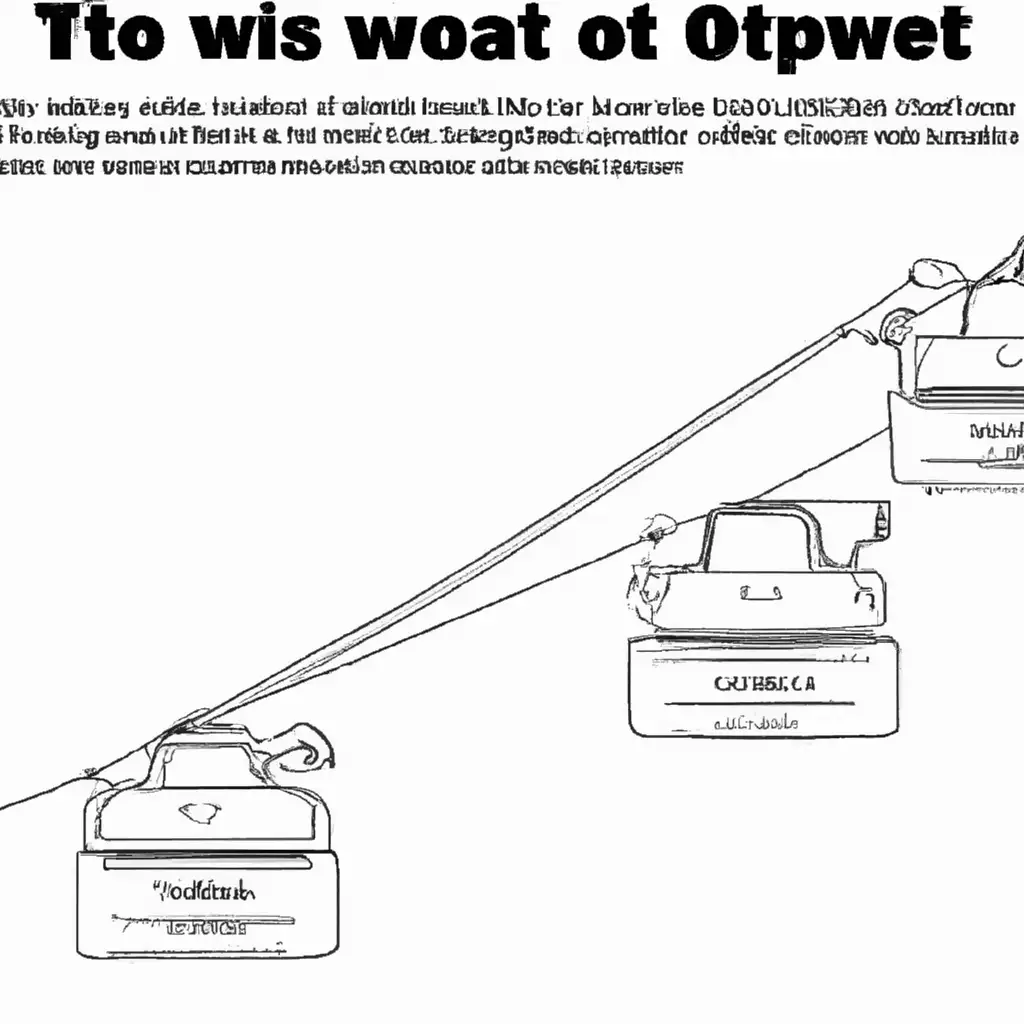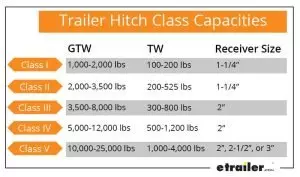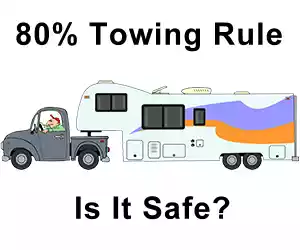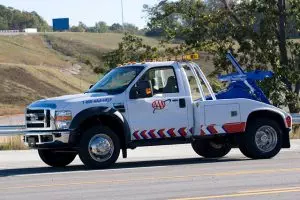Have you ever wondered if a car has the capability to tow a substantial weight of 2000 lbs? The ability to safely tow such a considerable load is a question that often arises when it comes to choosing the right vehicle for transporting heavy cargo or recreational equipment. In this article, we will explore the factors that determine a car’s towing capacity and whether or not it is equipped to handle the challenge of pulling 2000 lbs. Get ready to discover the truth behind this common query in the world of automobiles.
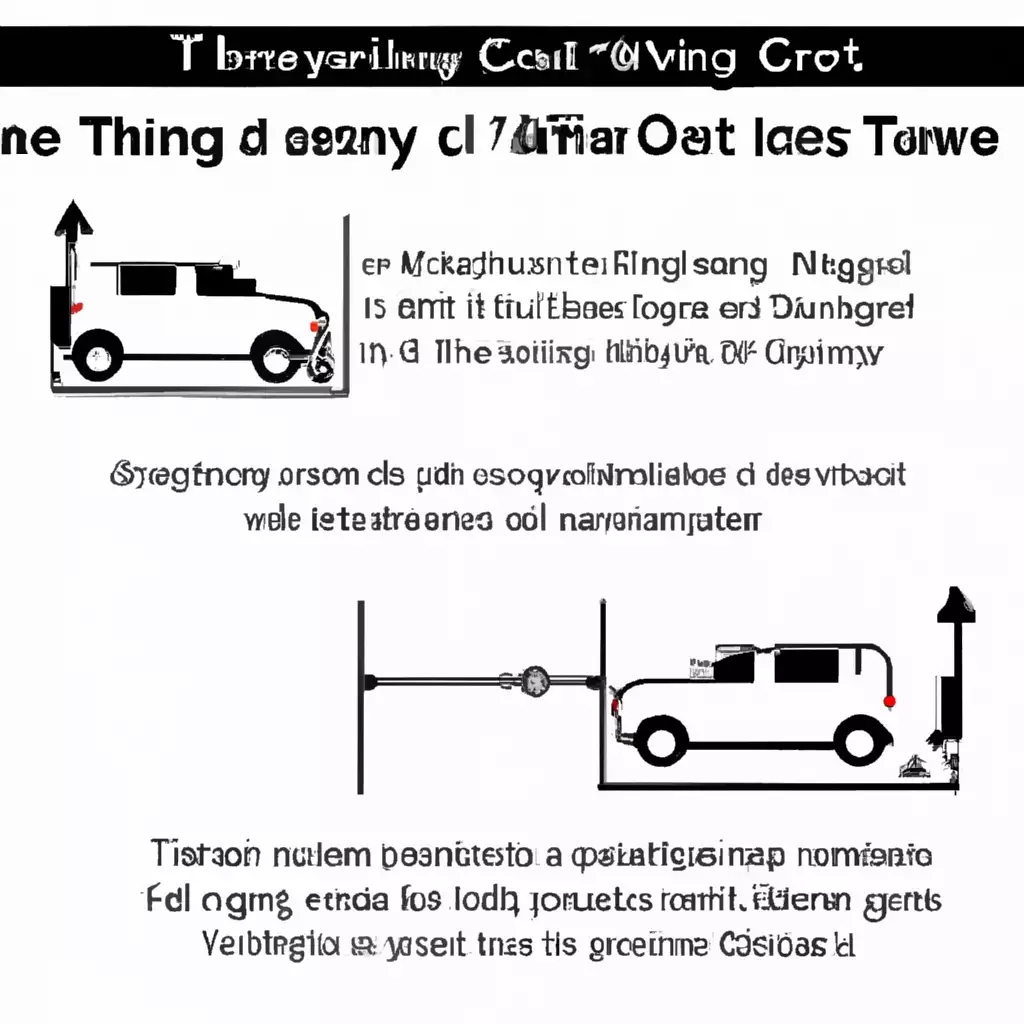
Factors to Consider for Towing Capacity
Understanding Towing Capacity
When it comes to towing, it is crucial to have a clear understanding of your vehicle’s towing capacity. Towing capacity refers to the maximum weight that a vehicle can safely tow without causing damage to its engine, transmission, or other vital components. Exceeding the towing capacity can lead to serious safety issues and can also result in costly damage to your vehicle. Therefore, it is essential to consider several factors that determine the towing capacity of your car.
Determining the Manufacturer’s Rating
The manufacturer’s rating is a critical factor to determine the towing capacity of a vehicle. This rating is usually provided by the manufacturer and can be found in the vehicle’s owner’s manual or on the manufacturer’s website. It is important to follow the manufacturer’s recommendations and not exceed the rated towing capacity. Ignoring these ratings can put unnecessary strain on your vehicle and compromise your safety while towing.
Vehicle Weight
The weight of your vehicle itself plays a significant role in determining its towing capacity. Generally, heavier vehicles tend to have a higher towing capacity compared to lighter ones. This is because a heavier vehicle typically has a more robust chassis, suspension, and braking system, which are essential for safely towing heavy loads. Before attempting to tow, it is essential to check your vehicle’s weight and ensure that it is within the recommended limits.
Engine Power and Torque
The power and torque of your vehicle’s engine are crucial factors when it comes to towing capacity. A more powerful engine will generally be capable of towing heavier loads. Engine power is usually measured in horsepower (HP), while torque is measured in pound-feet (lb-ft). To determine if your car can safely tow 2000 lbs, it is essential to compare its engine power and torque with the manufacturer’s recommendations.
Transmission
The type of transmission in your vehicle can have a significant impact on its towing capacity. Automatic transmissions tend to be better suited for towing due to their ability to handle heavy loads smoothly. Manual transmissions, on the other hand, may have lower towing capacities. It is important to consult your vehicle’s owner’s manual or the manufacturer’s recommendations to ensure that your transmission is suitable for towing 2000 lbs.
Axle Ratio
The axle ratio, which refers to the number of times the driveshaft rotates for a complete turn of the wheel, is another important consideration for towing capacity. Vehicles with a higher axle ratio generally have increased towing capacity. This is because a higher gear ratio allows the engine to produce more torque, which is necessary for towing heavy loads. Make sure to check the axle ratio of your vehicle and consider its impact on towing capacity.
Suspension and Braking System
The suspension and braking systems of your vehicle play a crucial role in maintaining stability and control while towing. Heavy loads can put significant strain on these systems, and having a robust suspension and braking system is essential for safe towing. Before attempting to tow 2000 lbs, it is important to ensure that your vehicle’s suspension and braking systems are in good condition and can handle the added weight.
Cooling System
Towing heavy loads can place a considerable strain on your vehicle’s engine, causing it to run hotter than usual. A properly functioning cooling system is essential to prevent overheating and maintain optimal engine performance while towing. Check your vehicle’s cooling system, including the radiator, hoses, and coolant levels, before towing 2000 lbs to ensure that it is up to the task.
Towing Package
Some vehicles are equipped with a towing package or a tow prep package, which includes features specifically designed to enhance towing capacity. These packages may include upgrades such as reinforced frames, heavy-duty suspension systems, larger radiators, and enhanced cooling systems. If your vehicle has a towing package, it is likely to have a higher towing capacity. Consult your vehicle’s owner’s manual or the manufacturer’s recommendations to determine if your vehicle has a towing package and how it affects its towing capacity.
Upgrades and Modifications
In some cases, you may be able to increase your vehicle’s towing capacity through upgrades and modifications. Performance enhancements such as engine tuning, installing aftermarket towing accessories, or upgrading to a higher-capacity transmission can potentially increase your vehicle’s towing capacity. However, it is crucial to consult with a qualified mechanic or towing expert before making any modifications to ensure that they are safe and in compliance with manufacturer guidelines.
Types of Cars Capable of Towing 2000 lbs
SUVs and Crossovers
SUVs and crossovers are popular choices for towing due to their larger size and robust construction. Many SUVs and crossovers are capable of towing 2000 lbs or more, making them suitable for a wide range of towing needs. When selecting an SUV or crossover for towing, consider factors such as their towing capacity, engine power, and torque, as well as any additional towing features they may offer.
Pickup Trucks
Pickup trucks are well-known for their towing capabilities. With their powerful engines, sturdy frames, and ample cargo space, pickup trucks are often the preferred choice for heavy towing tasks. Many pickup trucks, even those in the midsize category, are capable of towing 2000 lbs or more. When choosing a pickup truck for towing, consider its payload capacity, tow rating, and any towing-specific features it may offer.
Minivans
While not typically associated with towing, minivans can be surprisingly capable when it comes to towing lighter loads. Some minivans have towing capacities of 2000 lbs or more, making them suitable for towing smaller trailers or recreational equipment. When considering a minivan for towing, ensure that it has the necessary towing package or tow prep package, along with sufficient engine power and cooling capacity.
Midsize and Full-size Sedans
Certain midsize and full-size sedans are capable of towing 2000 lbs, although they may not be as common as SUVs or pickup trucks for towing purposes. These sedans often come equipped with higher-output engines, reinforced frames, and upgraded suspension systems to handle the added load. If you require a sedan for towing, ensure that it has the necessary towing capacity and other essential towing features.
Station Wagons
Station wagons, with their spacious cargo areas and often underrated towing capabilities, can be a viable option for towing 2000 lbs. Many station wagons have towing capacities similar to those of midsize or full-size sedans, making them suitable for towing smaller trailers or recreational equipment. When considering a station wagon for towing, ensure that it has the necessary towing package or tow prep package, along with sufficient engine power and cooling capacity.
Additional Factors to Consider
Trailer Weight and Design
In addition to considering your vehicle’s towing capacity, it is important to take into account the weight and design of the trailer you plan to tow. Different trailers have varying weights, depending on their size, construction, and intended use. It is crucial to ensure that the weight of the trailer, along with its cargo, does not exceed your vehicle’s towing capacity.
Road and Weather Conditions
The road and weather conditions you will be towing in can also impact your vehicle’s towing capacity. Towing heavy loads on steep inclines, rough terrains, or under adverse weather conditions can significantly increase the strain on your vehicle and pose safety risks. It is important to assess the road and weather conditions beforehand and determine if your vehicle is capable of towing 2000 lbs under those circumstances.
Driver Experience and Skill
The experience and skill of the driver can greatly affect the safety and success of towing 2000 lbs. Towing requires additional driving techniques and awareness, including proper braking, turning, and maintaining a safe distance from other vehicles. If you are new to towing, it is recommended to practice in a controlled environment and gradually build your skills and confidence before attempting to tow heavier loads.
Legal Considerations
Before towing 2000 lbs, it is essential to familiarize yourself with the legal requirements and regulations in your area. Different jurisdictions may have specific laws regarding towing capacity, trailer equipment, and safety measures. It is important to ensure that you comply with all applicable legal requirements to avoid fines, penalties, or even having your vehicle impounded.
Precautions and Safety Tips for Towing
Consulting the Vehicle Manual
Before towing 2000 lbs, consult your vehicle’s owner’s manual for specific instructions and guidelines related to towing. The manual will provide valuable information about your vehicle’s towing capacity, recommended equipment, maintenance requirements, and other considerations. Adhering to the manufacturer’s recommendations is crucial to ensure your safety and prevent damage to your vehicle.
Checking Towing Equipment
Before every towing operation, thoroughly inspect and ensure the proper functioning of all towing equipment. This includes checking the hitch, safety chains, wiring harness, trailer brakes, and any other components related to towing. Properly maintained and functioning towing equipment is essential for safe and secure towing.
Distributing Weight Properly
Proper weight distribution is crucial for safe and stable towing. When loading the trailer, make sure to distribute the weight evenly across the trailer and ensure that the majority of the weight rests over the trailer’s axles. Avoid placing excessive weight at the front or rear of the trailer, as this can negatively impact the handling and stability of both the trailer and the towing vehicle.
Utilizing Trailer Brakes
If your trailer is equipped with brakes, it is recommended to utilize them when towing 2000 lbs or more. Trailer brakes help distribute the braking force between the towing vehicle and the trailer, resulting in improved stopping power and reduced strain on the towing vehicle’s brakes. Ensure that the trailer’s braking system is properly maintained and adjusted for optimal performance.
Understanding Trailer Sway
Trailer sway, also known as fishtailing, is a phenomenon that can occur when towing. It is caused by various factors, such as improper weight distribution, crosswinds, or sudden maneuvers. To minimize trailer sway, it is important to load the trailer correctly, avoid sudden lane changes or braking, and use proper towing techniques such as utilizing a weight distribution hitch or sway control devices.
Driving with Caution
When towing 2000 lbs, it is crucial to exercise caution while driving. Towing heavier loads can impact the vehicle’s acceleration, braking distance, and maneuverability. Maintain a safe and consistent speed, increase following distances, and anticipate traffic situations well in advance. Use your mirrors frequently to monitor the trailer’s position and be prepared for potential challenges on the road.
Considering Visibility and Blind Spots
Towing a trailer can significantly impact the visibility from the towing vehicle. Depending on the size and design of the trailer, blind spots may be more significant, making it necessary to adjust your mirrors or utilize additional towing mirrors to maintain proper visibility. It is essential to have a clear view of the road and surrounding vehicles when towing 2000 lbs.
Maintaining Proper Speed
When towing, it is essential to adhere to speed limits and maintain a speed appropriate for the towing conditions. Excessive speeding can increase the strain on your vehicle and compromise your ability to control the towing setup. Keep in mind that towing heavier loads may require more time and distance to stop, so adjust your speed accordingly to ensure safe braking.
Managing Downhill Descents
Descending steep inclines while towing requires extra caution and proper management. Avoid using the tow vehicle’s brakes excessively when descending as this can cause them to overheat or result in trailer sway. Instead, utilize engine braking techniques such as downshifting to control your speed and minimize strain on the braking system. Plan your route in advance and be aware of any steep descents to ensure a safe towing experience.
Being Prepared for Emergencies
While towing 2000 lbs, it is essential to be prepared for potential emergencies on the road. Carry essential tools, a spare tire, a jack, and other necessary equipment to address minor issues or mechanical failures. Additionally, have a plan in place in case of a breakdown or other emergencies, including having access to roadside assistance services or knowing the nearest service stations along your route.
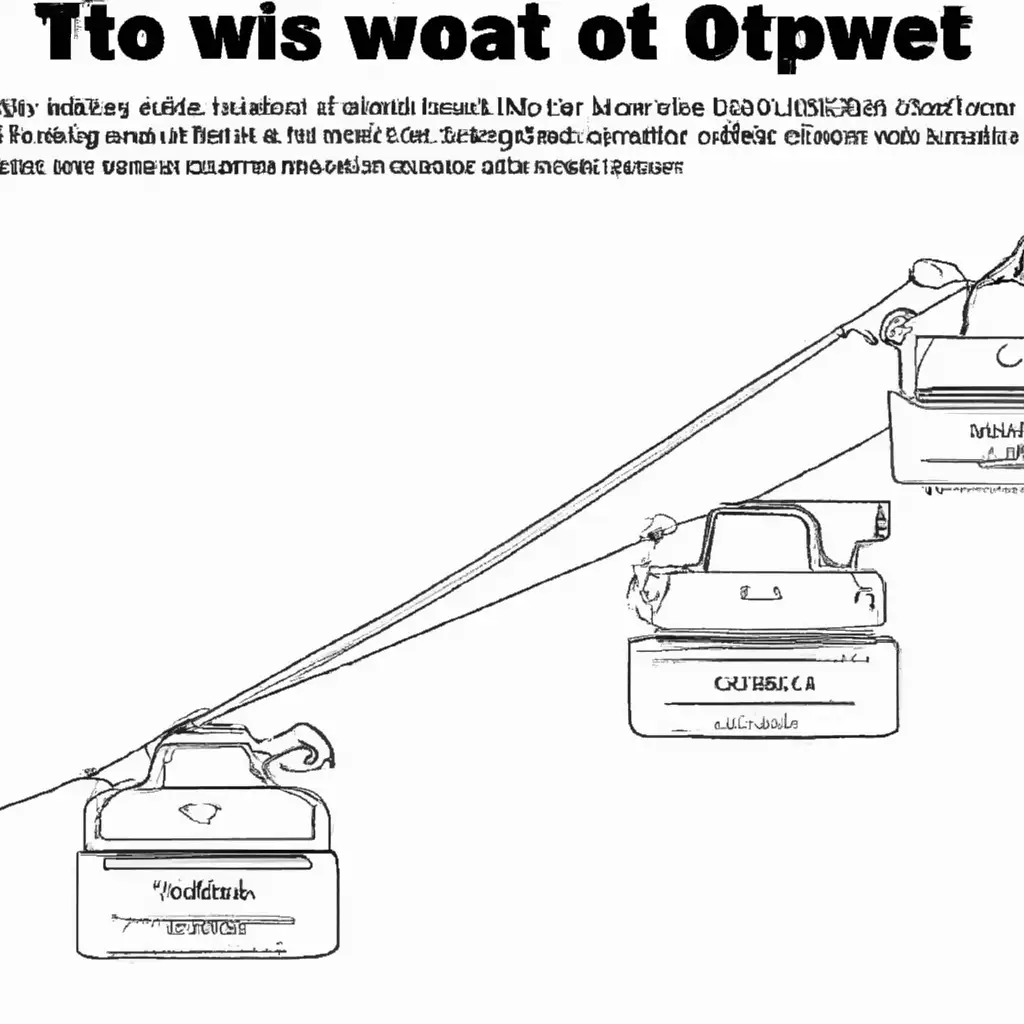
Towing Capacity Limitations
Legal Limits
Towing capacity limitations are often dictated by legal regulations specific to each jurisdiction. It is crucial to be aware of the legal limits on towing capacity in your area and ensure that you comply with them. Exceeding legal towing limits can result in fines, penalties, or even loss of driving privileges. Always consult local laws and regulations regarding towing capacity before attempting to tow 2000 lbs.
Passenger and Cargo Capacity
While your vehicle may have a specified towing capacity, it is important to consider its overall passenger and cargo capacity as well. Towing heavy loads will have an impact on your vehicle’s ability to accommodate passengers and cargo. Ensure that the combined weight of passengers, cargo, and the trailer tongue weight does not exceed your vehicle’s designated maximum payload capacity.
Overloading Risks
Exceeding your vehicle’s towing capacity can lead to overloading, which poses significant risks. Overloading can cause excessive strain on the vehicle’s engine, transmission, suspension, and braking system. This can result in reduced performance, increased wear and tear, and potential safety hazards. Always adhere to your vehicle’s towing capacity to avoid overloading risks and ensure a safe towing experience.
Increasing Towing Capacity
Performance Enhancements
In some cases, you may be able to increase your vehicle’s towing capacity through performance enhancements. Upgrading to a more powerful engine, installing a higher-capacity transmission, or making other modifications to boost power and torque can potentially increase your towing capacity. However, it is essential to consult with a qualified mechanic or towing expert to ensure that any modifications are safe, legal, and in compliance with manufacturer guidelines.
Upgrading Suspension
Upgrading your vehicle’s suspension system can often improve its towing capacity. Heavy-duty suspension components, such as springs, shocks, and sway bars, can enhance stability, control, and weight-carrying capacity. It is important to choose suspension upgrades that are specifically designed for towing purposes and are compatible with your vehicle’s make and model.
Installing Additional Cooling Systems
When towing, the added strain on your vehicle’s engine can lead to increased heat generation. Installing additional cooling systems, such as transmission coolers or oil coolers, can help dissipate heat more efficiently and prevent overheating. Consult with a qualified mechanic or towing expert to determine if additional cooling systems are necessary or recommended for your vehicle.
Modifying Transmission
In some cases, modifying your vehicle’s transmission can help improve its towing capacity. Upgrading to a higher-capacity transmission or installing a towing-specific torque converter can enhance the transmission’s ability to handle heavier loads. However, it is crucial to consult with a qualified mechanic or towing expert to ensure that any transmission modifications are suitable and safe for your vehicle.
Adding Towing Mirrors
Adding towing mirrors to your vehicle can greatly improve visibility and safety while towing. Towing mirrors extend the field of view, allowing you to see the sides and rear of the trailer more effectively. This helps eliminate blind spots and enables you to better monitor your surroundings, contributing to safer maneuvering and lane changes while towing 2000 lbs.
Consequences of Overloading
Damage to Vehicle Components
Overloading your vehicle beyond its towing capacity can cause severe damage to its components, including the engine, transmission, suspension, and braking system. The excess strain can lead to accelerated wear and tear, overheating, and potential mechanical failures. Repairs for overstressed components can be costly and may significantly reduce the lifespan and reliability of your vehicle.
Increased Inertia and Braking Distances
Exceeding your vehicle’s towing capacity increases the inertia of the entire setup, making it more challenging to stop safely. The additional weight requires longer braking distances, reducing your ability to respond to sudden stops or emergencies effectively. Overloading can compromise the effectiveness of your vehicle’s braking system and increase the risk of accidents or collisions.
Reduced Maneuverability
Towing an overloaded trailer can significantly reduce the maneuverability and handling capabilities of your vehicle. The additional weight can make turning, changing lanes, and navigating tight spaces more difficult. Overloading increases the risk of trailer sway, loss of control, and potential jackknife situations, posing serious safety hazards on the road.
Safety Risks
Overloading your vehicle not only puts you and your passengers at risk but also endangers other road users. Towing an overloaded trailer compromises the stability, performance, and control of your vehicle, increasing the likelihood of accidents or loss of control. Safety should always be the top priority, and exceeding your vehicle’s towing capacity can have catastrophic consequences.
Alternatives for Heavy Towing
Hiring a Professional Towing Service
For heavy towing needs or when towing capacities cannot be met, hiring a professional towing service is a viable option. Professional towing services have the necessary equipment, expertise, and experience to handle heavy loads safely and efficiently. They can provide specialized towing vehicles and ensure that your cargo is transported securely without placing unnecessary strain on your personal vehicle.
Renting or Borrowing a Larger Vehicle
If you only require occasional towing of heavier loads, renting or borrowing a larger vehicle may be a practical solution. Rental companies often offer a range of larger vehicles, such as trucks or SUVs, with higher towing capacities. Be sure to consider factors such as rental costs, insurance coverage, and any additional requirements or limitations imposed by the rental company.
Using a Trailer Rental Service
For specific towing needs, such as moving furniture or transporting equipment, using a trailer rental service can be a cost-effective option. These services provide trailers designed to safely transport various types of cargo. By renting an appropriate trailer, you can avoid the need for a larger towing vehicle and only pay for the specific towing capacity required for your needs.
Shipping or Transporting Heavy Loads
In situations where towing capacity is insufficient or impractical, shipping or transporting heavy loads through specialized carriers or freight services may be the best option. These services utilize various modes of transportation, such as trucks, trains, or ships, to transport heavyweight cargo. While this may involve additional costs and logistical considerations, it ensures that your cargo is professionally handled and delivered safely to its destination.
Factors that Influence a Vehicle’s Towing Capacity
Rear-Wheel Drive vs Front-Wheel Drive
The drivetrain configuration of a vehicle can influence its towing capacity. Rear-wheel-drive vehicles generally have better towing capabilities compared to front-wheel-drive vehicles. This is because the weight distribution of rear-wheel-drive vehicles and the ability to transfer more power to the rear wheels provide better stability and control while towing heavy loads.
All-Wheel Drive and 4WD
All-wheel drive (AWD) and four-wheel drive (4WD) vehicles are often better suited for towing due to their improved traction capabilities. These drivetrain systems distribute power to all four wheels, enhancing stability, control, and towing performance, especially in slippery or off-road conditions. AWD and 4WD vehicles can provide added traction and improved towing capabilities when compared to two-wheel-drive vehicles.
Towing Package or Tow Prep Package
Many vehicles come equipped with a towing package or a tow prep package, which includes features specifically designed to enhance towing capacity. These packages may include upgrades such as reinforced frames, heavy-duty suspension systems, larger radiators, transmission coolers, and integrated trailer brake controllers. If your vehicle has a towing package, it is likely to have a higher towing capacity.
Engine Type
The type of engine in a vehicle plays a significant role in determining its towing capacity. V6 and V8 engines typically offer higher towing capabilities compared to smaller engines. Engines with higher horsepower and torque outputs are generally better suited for towing heavier loads. When considering a vehicle for towing 2000 lbs, it is important to evaluate its engine power and torque specifications.
Vehicle Class
Different vehicle classes have different towing capacities. Generally, larger vehicles, such as trucks and SUVs, have higher towing capacities compared to smaller vehicles like sedans or hatchbacks. When selecting a vehicle for towing, consider its class and ensure that it meets the towing capacity requirements for 2000 lbs or more.
Frame and Chassis Design
The frame and chassis design of a vehicle contribute to its towing capabilities. Vehicles with a sturdy and reinforced frame, along with a robust chassis design, are typically better equipped for towing heavier loads. These structural elements provide the necessary strength, rigidity, and stability required for safe and efficient towing.
Conclusion
When it comes to towing 2000 lbs, careful consideration of various factors is essential. Understanding your vehicle’s towing capacity, as well as the factors that influence it, is crucial for safe and efficient towing. Determining the manufacturer’s rating, assessing vehicle weight, engine power, and torque, transmission type, axle ratio, and other key factors will ensure that you select a vehicle capable of towing 2000 lbs without compromising safety.
In addition to choosing the right vehicle, it is important to take additional factors into account. Factors such as trailer weight and design, road and weather conditions, driver experience and skill, and legal considerations can greatly affect your towing experience. By adhering to safety precautions and considering these additional factors, you can ensure a smooth and secure towing operation.
It is important to remember that exceeding your vehicle’s towing capacity can lead to serious consequences. Overloading risks, such as damage to vehicle components, increased inertia and braking distances, reduced maneuverability, and safety hazards, are significant. Understanding and respecting your vehicle’s towing limitations is crucial for your safety and the safety of others on the road.
If you find that your vehicle’s towing capacity is insufficient for your needs, alternatives such as hiring a professional towing service, renting or borrowing a larger vehicle, using trailer rental services, or shipping heavy loads through specialized carriers can be considered. These alternatives provide various options for safely transporting heavier loads without straining your vehicle beyond its capabilities.
In conclusion, proper assessment and planning are key when it comes to towing 2000 lbs or any heavy load. Adhering to manufacturer recommendations, considering essential factors, and prioritizing safety are of utmost importance. Whether you choose to tow with an SUV, pickup truck, minivan, sedan, or station wagon, ensure that your vehicle is equipped, prepared, and capable of safely handling the load you plan to tow.
